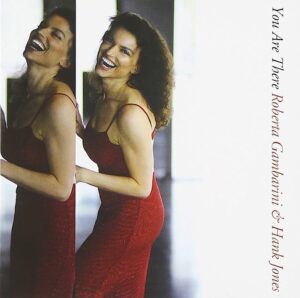リズムとタイミングを改善するための秘訣 by チック・コリア
Chick Corea氏の「リズムとタイミングを改善するための秘訣」を翻訳しました。
とても興味深い内容です。
内容に誤りがございましたらご指摘いただけるとありがたいです。
翻訳文
One really good exercise that I think most musicians, a lot of artists, a lot of people use this, it’s a really good way to check your own judgment to see how to improve your judgment. Because it’s your judgment you're working with.
ほとんどのミュージシャン、多くのアーティスト、多くの人々が利用している、自分自身の判断をチェックし、判断力を向上させるための非常に有効なエクササイズがあります。なぜなら、あなたが取り組んでいるのは自分自身の判断だからです。
So one way to do that is - it’s an easy way to apprentice. What you do is you find a recording of a passage or song or an artist that has the kind of time and rhythm that you like, you say “Wow, that’s cool. I wish I could be that-" whatever. That fluent or that smooth or that swinging or that whatever. Whatever your concept is. You say, “Boom. I wish I could-" see languages, it’s so hard to describe. "I wish I could do that."
それを行う方法の一つは、修行をするための簡単な方法です。まず、自分が好きな時間やリズムを持った楽曲やアーティストの録音を見つけます。「わあ、これは素晴らしい。ああ、あんなふうになりたいな」と思うでしょう。流暢さや滑らかさ、スウィングなど、自分のコンセプトに合ったものです。つまり、「ああ、あんなことができたらいいな」と思うのです。
So, what you do is you take that as a model. And for the first step in practice, try to duplicate it. Just mimic it completely. See if you can find out by mimicking it, what the points in it are that you like, technically. You can mimic it. I used to do that with Bud Powell's music. And I tried to mimic his motion. So I get the flow of his rhythm and so forth. That’s step number one. And then turn the recording off and play it yourself and see if that has helped you get the groove and improve. That’s one way to do it. That’s - I’m going to give you the ultimate exercise in a second. But that’s one way to do it when you’re on your own in your practice room.
次に、その録音をモデルとして取り組みます。まずは練習の最初のステップとして、完全に模倣してみてください。技術的に自分が好きなポイントが何か、模倣することで見つけ出せるか試してみてください。私はかつてBud Powellの音楽を模倣していました。彼の動きを模倣しようとしました。その結果、彼のリズムの流れなどを掴むことができました。これが第一歩です。そして、録音を止めて自分で演奏し、それがグルーヴを作り上げて改善に役立ったかを確認してみてください。これは一つの方法です。それが独自の練習室で行う際の方法です。
Another thing that I wanted to say is another method that musicians use that is really great, that I think is really valid, is that you record yourself. Use a sequencer or use a recorder of any kind or video, use an actual video recorder. And record yourself playing something. Something that you would like to judge whether - on what level it is. What you need to improve and then play it back and look at it or listen to it and go, “Well, that’s too much this way and it needs more of that.” So now practice more of that toward whatever your ideal is. Because the tricky thing is, only you're going to know when you reach a point where you go, “Oh yeah, that's pretty good.” Who else is going to tell you that? Who, that matters? You’re not looking for admiration at this point. You’re looking for, you’ve got to know. So you’ve got to start trusting your own judgment.
もう一つ言いたいことがあります。ミュージシャンが使う、非常に素晴らしい方法であり、私は本当に有効だと思う方法は、自分自身を録音することです。シーケンサーを使用したり、どんな種類の録音機器やビデオでも使用したり、実際のビデオレコーダーを使用したりします。そして、自分が演奏する様子を録音します。自分が判断したい何かを演奏して録音するのです。それがどのレベルにあるのか、どこを改善する必要があるのかを判断したいのです。そして、それを再生して見たり聴いたりし、「うーん、これはこれで過ぎていて、あれがもっと必要だ」と思うのです。だから、自分の理想に向けてそれをより練習します。なぜなら、難しいことは、あなた以外の誰もがあなたが「ああ、それはかなり良い」と思うポイントに到達した時を知ることはできないからです。誰かがそれを教えてくれるわけではありません。あなたはこの時点では称賛を求めているのではありません。あなたは自分自身を知るために、自分自身の判断を信じる必要があります。
Now the ultimate exercise is not only in improving time but improving anything that you’d like to improve as a musician is what I called, what is generally known as the apprenticeship system. Apprenticeship.
最終的なエクササイズは、タイムを改善するだけでなく、ミュージシャンとして改善したい任意の要素を改善することです。私が言うように、一般的に見知らぬ技術として知られているものを、見習い制度と呼んでいます。見習い制度です。
Now when you’re an apprentice, you find a "master" to work with. It could be anyone. It could be your next-door neighbor who plays a little bit better than you. Or a friend. Or whoever it is who’s got an ability that you think you would like to have too. And you go play with him, you go work with him, you go collaborate with, you go make music together, and this is how anyone learns a trade or anyone learns the piano or how anyone learns an instrument. You go and play with other musicians that can help you understand the area that you're trying to learn in and so forth. That’s called an apprenticeship. Work with a band, work with another musician. Always with the idea that you want to learn something and you're there to assimilate what positive things you see and learn from them. And that is the ultimate "secret" of improving your time, your rhythm.
見習いとして、あなたは一緒に働く「師匠」を見つけます。誰でもかまいません。隣人であっても少し上手い人かもしれません。友人かもしれません。あなたが持ちたい能力を持っていると思う人かもしれません。そして、彼と一緒に演奏し、彼と一緒に働き、協力し、一緒に音楽を作ります。これが、どんな職業を学ぶためでも、ピアノを学ぶためでも、楽器を学ぶためでも、誰もが学ぶ方法です。自分が学びたい分野を理解するのに役立つ他のミュージシャンと一緒に演奏します。これが見習い制度と呼ばれるものです。バンドと一緒に働き、他のミュージシャンと一緒に働きます。常に何かを学びたいという意識を持ち、彼らから良いものを吸収し、学ぶことが目的です。そして、それがあなたのタイムやリズムを改善する究極の「秘訣」なのです。
END

